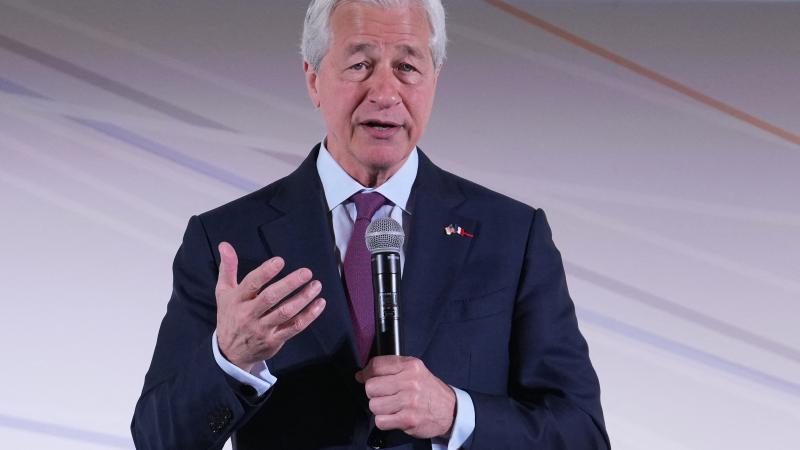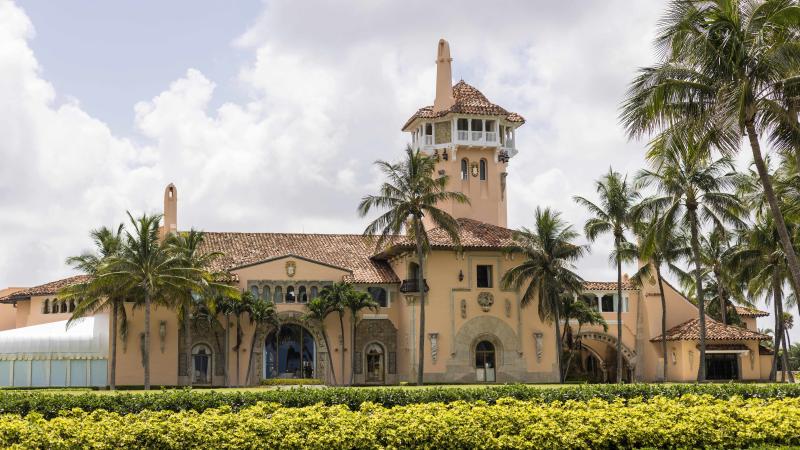Trump’s baffling beef boogaloo
The Trump administration has tried to throw an economic lifeline to the government of Argentinian President Javier Milei, whose economic reforms have led to considerable tumult there. U.S. farmers aren't too happy about it.
President Donald Trump is going to have to do some fancy footwork after his move to purchase beef from Argentina. Though he hopes the purchases will help to stabilize the economy of an allied power and lower costs for the average American consumer, domestic ranchers are challenging his commitment to the “America First” mantra and complaining that his Department of Agriculture has done little to help them address the supply problem stateside.
The Trump administration has sought to extend an economic lifeline to the government of Argentinian President Javier Milei, whose economic reforms have led to considerable tumult. The Treasury Department has committed to a $40 billion bailout, but the idea of purchasing beef from Argentina remains a mere suggestion.
“President Trump and his cabinet are working every day to lower prices for consumers,” a USDA spokesperson told Just the News. “While prices for other proteins such as eggs, pork and chicken have declined in recent months, beef prices remain elevated. This is due to the perfect storm of sustained increase in consumer demand for beef coupled with a prolonged decrease in the supply of live cattle.”
U.S. ranchers say they want a chance
Theoretically, increasing the supply of beef in the market would lower prices and ease the burden on consumers, who have complained of rising grocery costs. But American cattle ranchers, a generally reliable Republican constituency, feel betrayed by the mere suggestion and have urged him to instead fix the problems stateside by revamping the Department of Agriculture.
“We understand beef prices are high, and we admire your concern for all Americans, but this is not the fault of the American producer,” cattle producer Meriwether Farms wrote in a public letter to Trump. “This is the fault of politicians who have allowed BRICS-aligned entities to dominate the meat industry, that participate in price fixing and who also continually lie to their consumers.”
“On top of all this—there is only chaos coming from the Department of Agriculture. There is no true guidance, mixed messaging, and a copious amount of photo ops,” they continued. “There is no one to trust over there that truly understands the issues and isn’t bought out by or aligned with Big Industries.”
Meriwether Farms is far from alone in that sentiment. Indiana cattle rancher Todd Armstrong told CNN that “[w]hat frustrates me about this whole move is President Trump ran on an ‘America First’ program. I don’t see anything in this that puts America first. It’s hypocritical.”
Republican lawmakers, for their part, have relayed concerns from their constituents to the same effect. Rep. Marjorie Taylor Greene, R-Ga., for instance, reshared the Meriwether Farms letter, saying "I’m hearing the same sentiment in my district.”
“At this point, help Americans only!” she insisted earlier this week.
“What we’re hearing from Montana ranchers and American ranchers and farmers generally is, ‘Give us a chance to do this with American products, with American producers first, before we turn to foreign markets’,” Sen. Tim Sheehy, R-Mont., told CNN.
A frustrated Trump shows U.S. ranchers tough love
Trump himself has lashed out against the aggravated cattle ranchers, suggesting that they lacked an understanding of tariffs and even implying they were ungrateful for the advantages that his import duties provided to their industry.
"The Cattle Ranchers, who I love, don’t understand that the only reason they are doing so well, for the first time in decades, is because I put Tariffs on cattle coming into the United States, including a 50% Tariff on Brazil," he said this week.
"If it weren’t for me, they would be doing just as they’ve done for the past 20 years — Terrible! It would be nice if they would understand that, but they also have to get their prices down, because the consumer is a very big factor in my thinking, also!"
Whether the cattle ranchers themselves can actually afford to lower consumer costs remains unclear. Meriwether suggested that the “low margins” that they typically run could prove prohibitive.
U.S. lost more than 17% of family farms over the last 10 years
On the whole, cattle ranchers collectively seem to want aid in meeting consumer demand, and potentially lowering costs, from Washington directly. To be sure, the Agriculture Department has worked to improve American market access to other countries.
In July, for instance, the Agriculture Department announced that Trump’s trade agreements had improved American access to the Australian market. But such a development affects the demand side of the equation rather than the supply side.
The USDA was at the same time adamant that the administration is working to bolster domestic production, but emphasized that such a development would take time.
“Building back the herd will take time, but Secretary Rollins is committed to reduce risk for cattle producers, deliver robust disaster relief to cattle country, and support new and beginning ranchers across the country,” the USDA spokesperson said. “These actions coupled with President Trump’s work to secure lasting markets for beef producers abroad sends a strong message to American cattle producers - raise more beef and rebuild the herd.”
Secretary of Agriculture Brooke Rollins, on Tuesday, announced a plan to help local farmers, highlighting that the current American herd is at a 75-year low and that the U.S. lost more than 17% of family farms in the past 10 years. Her plan included deregulation and working with local ranchers to put domestically produced beef in schools.
Skepticism about Rollins' commitment
Rollins, for her part, has long been a focal point for criticism and allegations that she is insufficiently aligned with the America First agenda. In June of this year, for instance, she faced considerable scrutiny after the Trump administration announced a pause on immigration enforcement at farms, with many accusing her of advocating on behalf of the agricultural lobby for the move.
"The President and I have consistently advanced a 'Farmers First' approach, recognizing that American households depend upon a stable and LEGAL agricultural workforce," she said at the time.
Ben Whedon is the Chief Political Correspondent at Just the News. Follow him on X.














